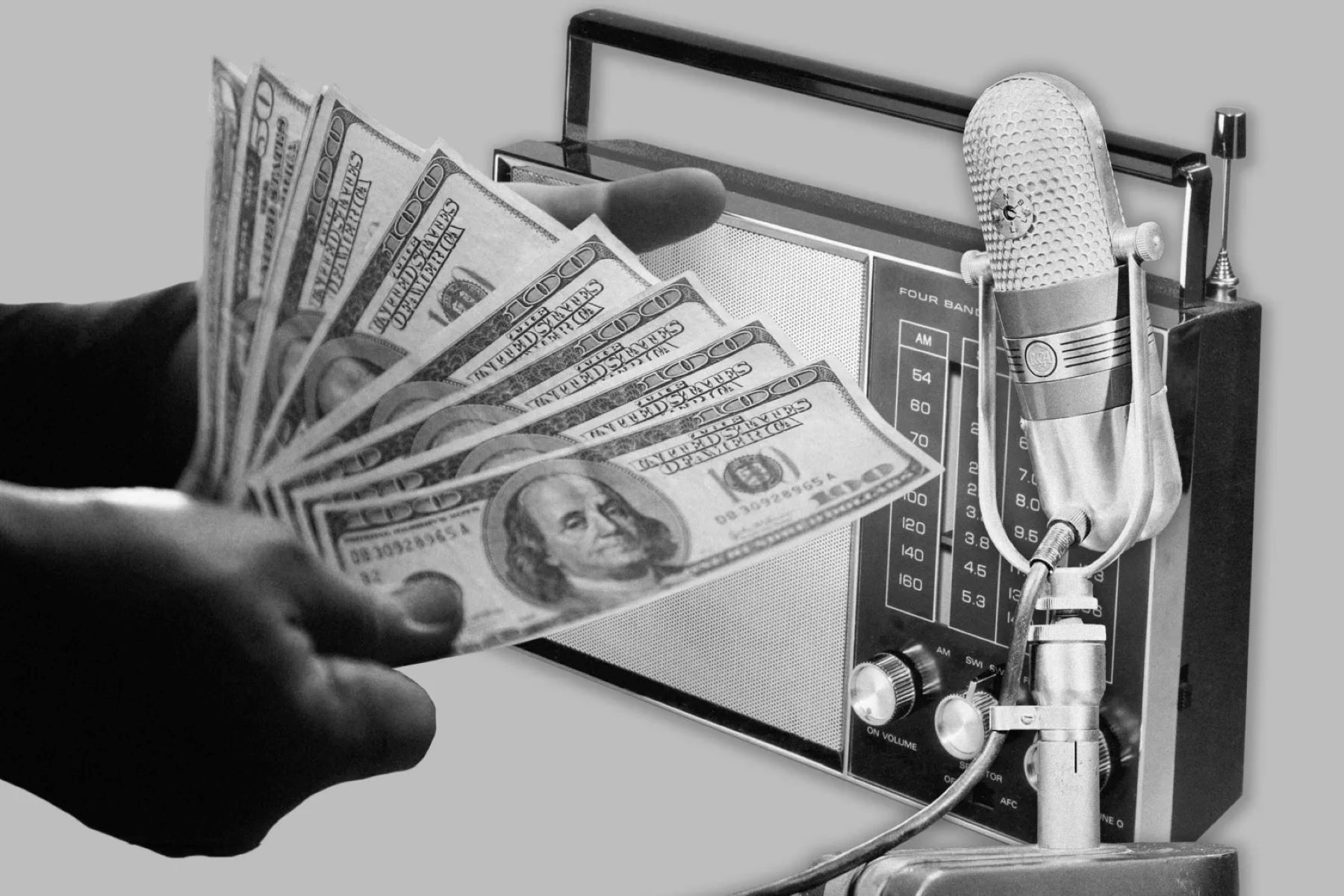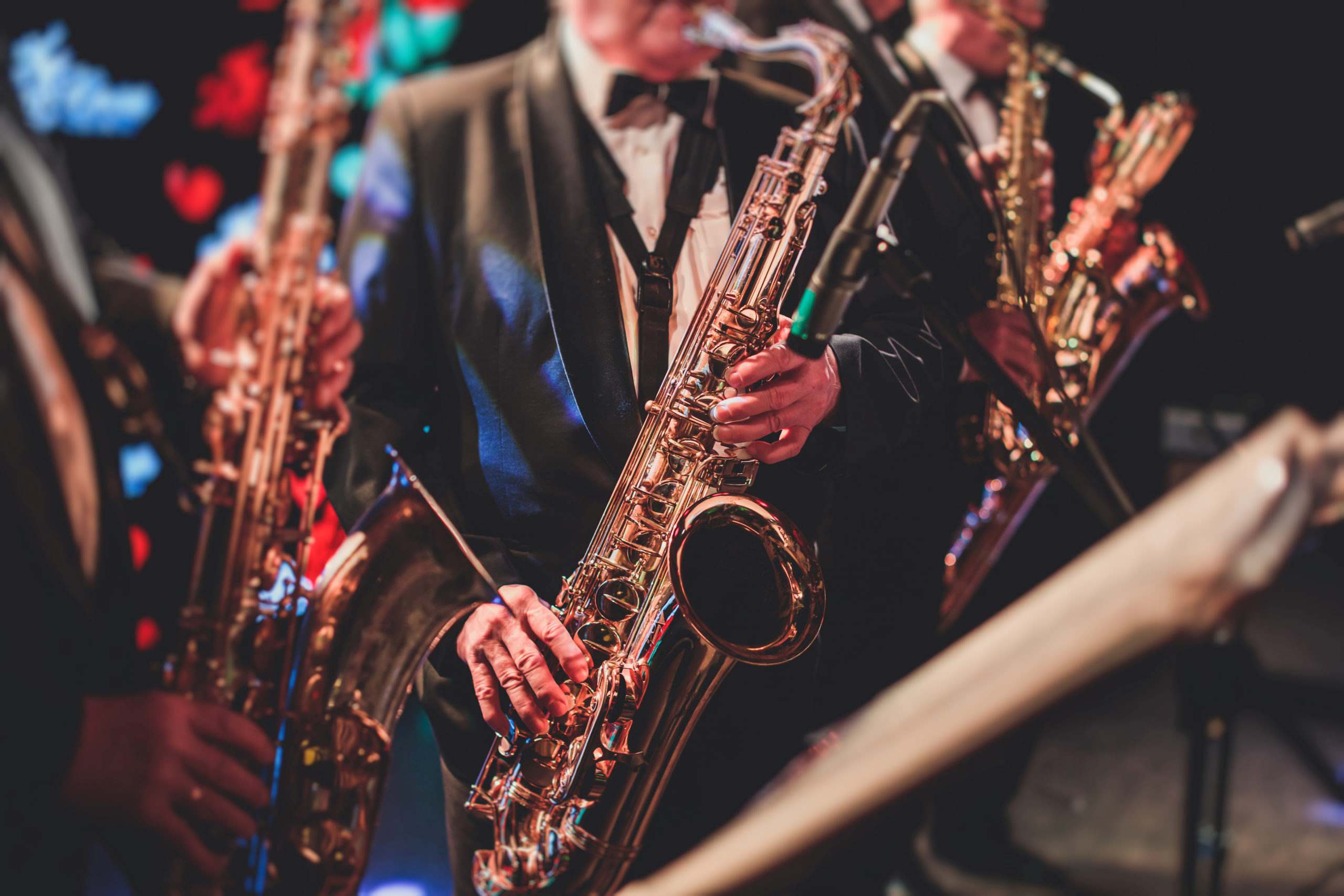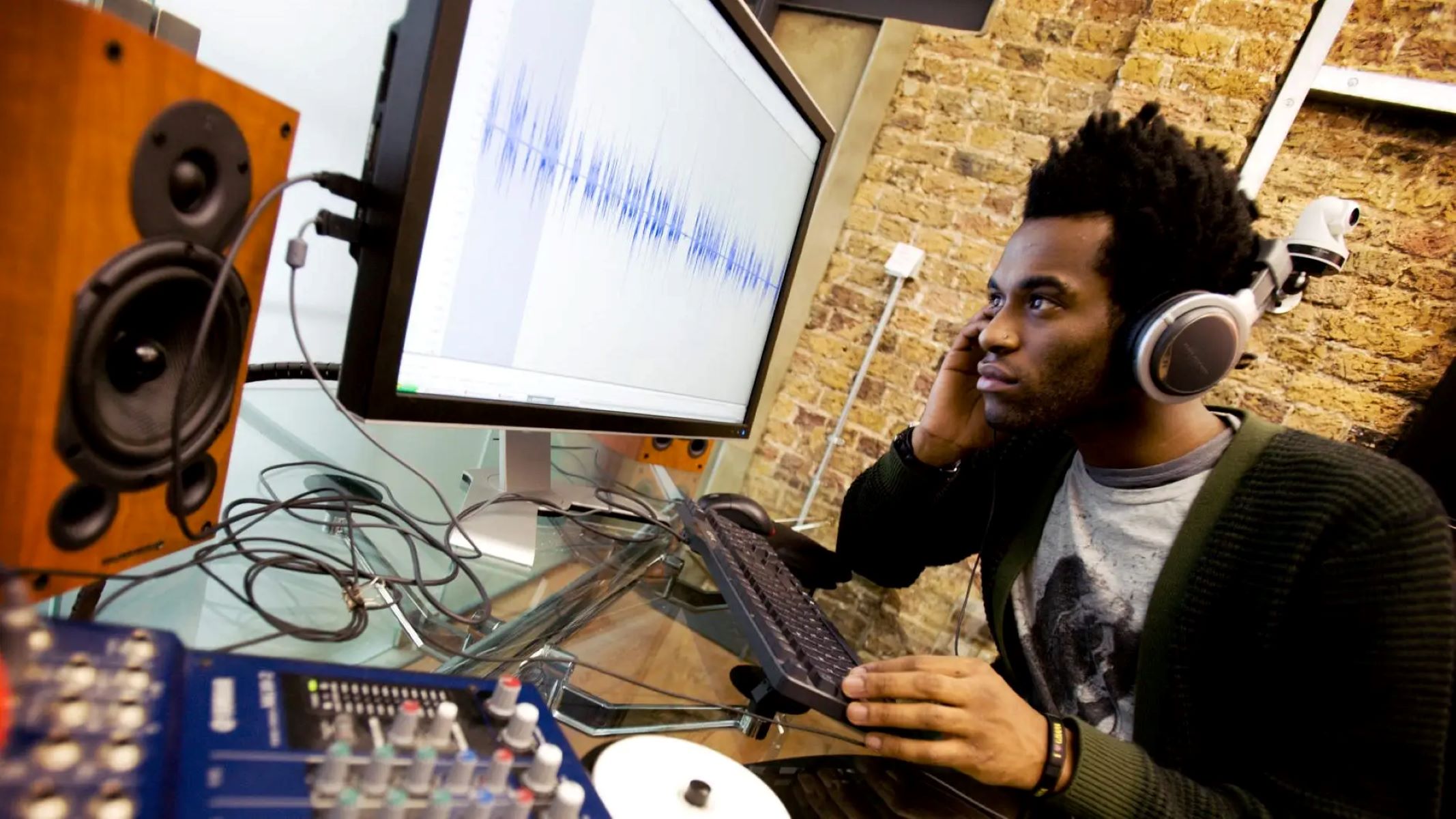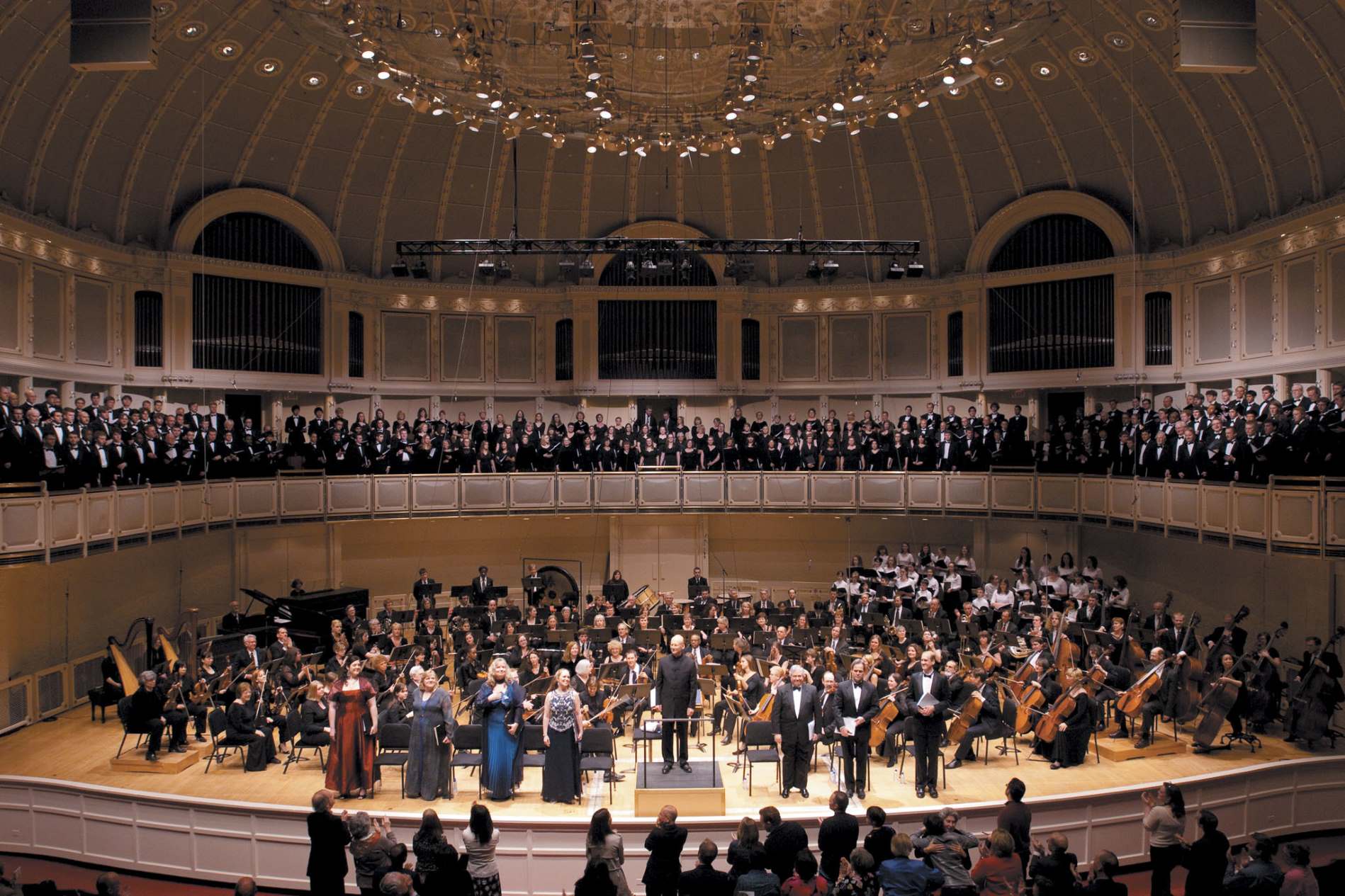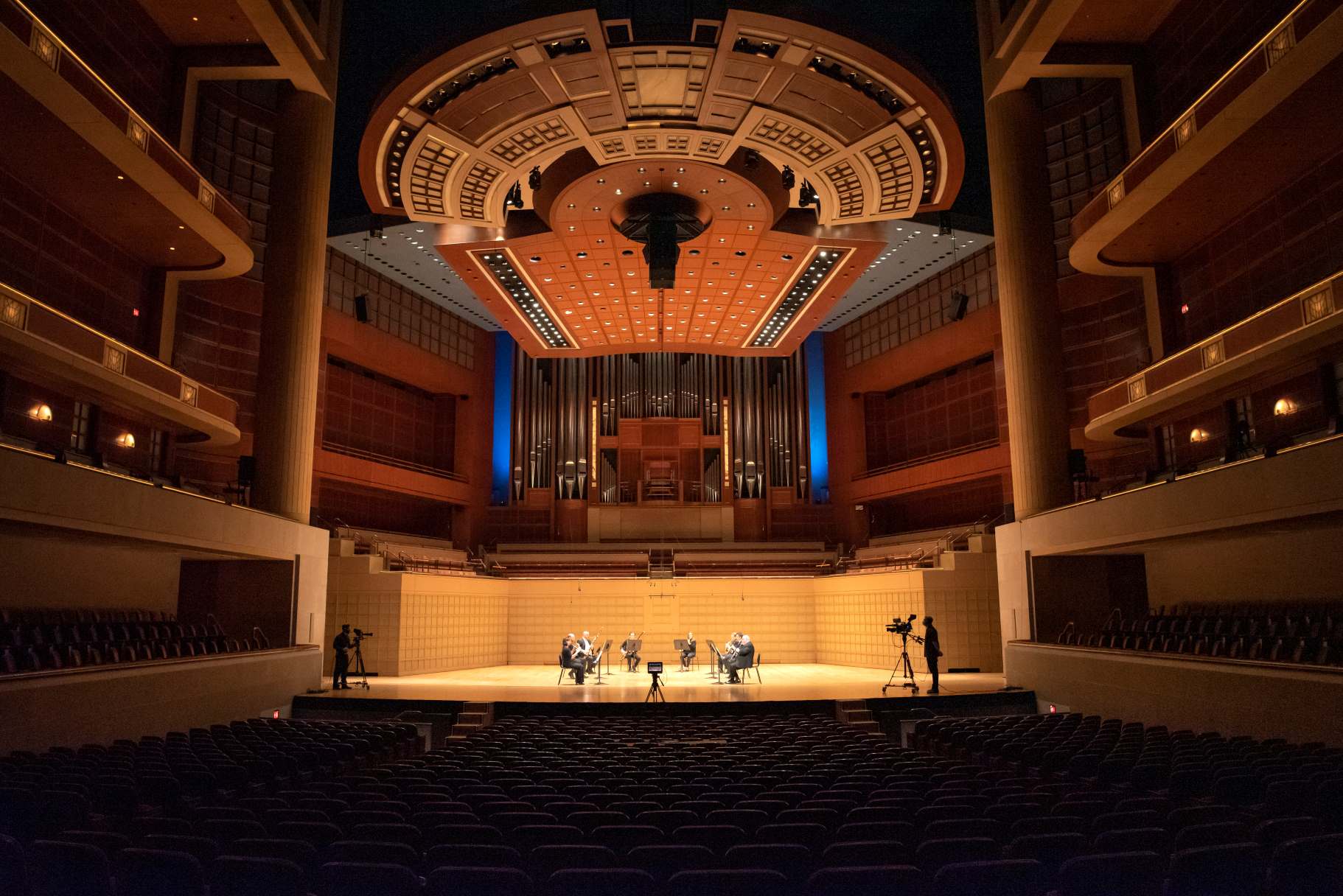Home>Production & Technology>Musician>How Musician Make Money


Musician
How Musician Make Money
Published: January 27, 2024
Discover the various ways musicians make money in the ever-evolving music industry. From live performances to streaming royalties, learn how to monetize your passion as a musician.
(Many of the links in this article redirect to a specific reviewed product. Your purchase of these products through affiliate links helps to generate commission for AudioLover.com, at no extra cost. Learn more)
Table of Contents
Introduction
Being a musician is often a labor of love, but it’s also a profession that requires a fair amount of financial stability. While there may be an assumption that musicians solely rely on album sales and concert tickets to make a living, the reality is that there are multiple revenue streams available to them.
With the rise of digital platforms and the changing landscape of the music industry, musicians have had to adapt and diversify their income sources. In this article, we will explore the various ways musicians make money and how they can leverage their talents and creativity to turn their passion into a sustainable career.
From live performances and music streaming to merchandise sales and sponsorships, musicians have a range of options to generate income. Additionally, they can explore opportunities in royalties and licensing, music publishing, crowd funding, teaching and workshops, and sync licensing and placements.
While it’s important to note that the financial success of a musician can vary greatly depending on factors such as their level of fame, genre of music, and overall business acumen, understanding the different revenue streams available can help musicians navigate the industry and make informed decisions about their career.
So, whether you’re an aspiring musician looking for insights into the industry or simply a fan curious about the inner workings of the music business, read on to discover how musicians make money and the strategies they use to support their artistic endeavors.
Live Performances
One of the most traditional and fundamental ways musicians make money is through live performances. Whether it’s playing at local venues, music festivals, or even stadium shows, performing live allows musicians to connect with their audience on a personal level and showcase their musical talent.
Artists typically earn money from live performances through ticket sales. The more popular and in-demand an artist is, the higher the ticket prices and the larger the audience they can attract. In addition to ticket sales, musicians may also earn revenue from merchandise sales at their concerts, such as t-shirts, posters, and other branded items.
While established artists may command higher fees for their performances, emerging musicians may initially need to play smaller gigs and build a following before they can start earning significant money from live shows. However, as their popularity grows and their fan base expands, so does the potential for higher paychecks.
In recent years, the emergence of online platforms has also opened up additional opportunities for live performances. Platforms like YouTube, Twitch, and Instagram Live allow musicians to livestream their performances to a global audience. This not only provides a convenient way for artists to reach their fans but can also serve as a revenue stream through virtual tip jars, digital ticket sales, or brand sponsorships for the livestream.
Live performances are not only a way for musicians to make money, but they also play a crucial role in building their brand and fan base. A captivating live show can leave a lasting impression on the audience, leading to increased album sales, merchandise purchases, and a growing fan following.
However, it’s important to note that live performances often require a significant amount of time, effort, and expenses. Musicians need to invest in equipment, rehearsals, travel, accommodation, and marketing to ensure a successful and engaging performance. Therefore, it’s essential for musicians to strike a balance between the income they generate from live shows and the costs associated with them.
Overall, live performances are a key component of a musician’s career and can be a major source of income. They offer a unique opportunity for artists to connect with their audience, build their brand, and showcase their musical talent while earning money through ticket sales and merchandise.
Music Streaming
With the advent and widespread popularity of music streaming platforms, such as Spotify, Apple Music, and Amazon Music, musicians have found a new revenue stream in the digital age. Music streaming has revolutionized the way people consume music and has become a primary mode of music discovery for listeners worldwide.
Artists earn money from music streaming through a complex system of royalty payments. Each time their music is streamed, they receive a fraction of a cent, known as a streaming royalty. The exact amount varies depending on factors such as the streaming platform, the artist’s level of popularity, and the listener’s subscription level.
While the per-stream royalty may seem small, the sheer volume of streams can add up, especially for established and popular musicians. Additionally, streaming platforms offer artists the opportunity to reach a global audience without the need for physical distribution or extensive marketing efforts.
To maximize their earnings from music streaming, musicians can focus on growing their stream counts through various strategies. This includes promoting their music on social media, collaborating with other artists, getting featured on popular playlists, and releasing new music regularly to keep their audience engaged.
Streaming platforms also provide data and analytics that can help musicians gain insights into their audience and make better-informed decisions about their content and marketing strategies. This information can be used to tailor their music and promotional efforts to cater to their target demographic and potentially increase their streaming revenue.
It’s important to note that music streaming is not without its challenges. The revenues generated from streaming may not be sufficient for emerging or independent artists to sustain themselves solely through streaming platforms. This has led to discussions and debates about fair compensation and the need for more transparent and equitable payment models for artists.
Nevertheless, music streaming remains a significant revenue source for musicians of all levels. It offers an opportunity for exposure, discovery, and the potential for income growth as their popularity and stream numbers increase. Musicians can leverage the power of streaming platforms to reach a global audience and earn money through royalties while enjoying the benefits of digital distribution.
Merchandise Sales
Merchandise sales have long been a staple for musicians to generate income and connect with their fans on a more personal level. From t-shirts and hoodies to posters and accessories, merchandise offers a tangible way for fans to show support for their favorite artists while also providing a valuable revenue stream for musicians themselves.
By creating and selling merchandise, musicians can tap into their dedicated fan base and capitalize on their brand. Fans often love to wear their favorite artist’s merchandise as a form of self-expression, creating a sense of belonging and community. This not only helps to strengthen the artist-fan relationship but also serves as a walking advertisement for the musician.
Artists can sell merchandise at live shows, through their official website, or on various online platforms. They can also collaborate with other brands or artists to create limited edition or exclusive merchandise, further enhancing the desirability and value for fans.
Additionally, merchandise sales can be a more profitable avenue for musicians compared to royalties earned from streaming or even album sales. The production costs of merchandise are relatively low, allowing for higher profit margins. However, it is essential for musicians to find a balance between pricing their merchandise competitively and ensuring that it is accessible to their fans.
Creating unique and appealing merchandise requires careful consideration of design, quality, and branding. Musicians often work closely with designers and merchandise companies to create visually appealing and high-quality products that fans will be eager to purchase. From album artwork-inspired designs to creative collaborations, there is a wide range of possibilities to explore in the world of merchandise.
Furthermore, merchandise sales can extend beyond traditional items like clothing and accessories. Musicians can also offer exclusive experiences or limited edition items, such as signed albums, vinyl records, or even personalized video messages, to provide their fans with something truly special and unforgettable.
Overall, merchandise sales provide musicians with a lucrative revenue stream and a way to deepen their connection with their fans. It allows fans to showcase their support for the artist while providing artists with additional income and a means to further promote their brand. By creating unique and desirable merchandise, musicians can generate a substantial amount of income while strengthening their relationship with their fan base.
Royalties and Licensing
Royalties and licensing are vital sources of income for musicians, particularly in relation to their recorded music. These revenue streams enable musicians to earn money from the usage and distribution of their music in various contexts, including radio, television, film, commercials, and online platforms.
When a musician signs a record deal, they typically receive royalties based on the sales and streams of their music. This means that every time their music is purchased, played on the radio, or streamed on platforms like Spotify or Apple Music, they earn a percentage of the revenue generated.
Additionally, musicians can earn royalties through performance rights organizations (PROs). PROs help collect and distribute royalties on behalf of artists when their music is performed in public, such as on the radio, in clubs, or at live events. These organizations track and monitor the usage of music and ensure that musicians receive fair compensation for their work.
In terms of licensing, musicians have the opportunity to license their music for use in various media formats. This can include licensing their music for commercials, films, TV shows, video games, and other media productions. Licensing agreements can involve one-time upfront payments or ongoing royalties depending on the terms negotiated between the musician and the licensee.
One popular form of licensing in recent years is sync licensing, where a musician’s song is synchronized and used alongside visual content, such as in a TV show or movie scene. Sync licensing can be a highly lucrative opportunity for musicians, as it exposes their music to a wide audience and can result in increased recognition and revenue.
It’s worth noting that royalties and licensing income can vary greatly depending on the artist’s level of success, the popularity of their music, and the scope of usage. Well-known artists with extensive catalogues of music may receive substantial royalty payments, while emerging artists may see more modest earnings in the beginning of their careers.
To effectively navigate the world of royalties and licensing, musicians often work closely with music publishers, licensing agencies, and legal professionals who specialize in the music industry. These experts assist in negotiating favorable deals, ensuring that the artist retains control over their music, and maximizing their earning potential.
Overall, royalties and licensing are valuable income streams for musicians, providing them with ongoing earnings and opportunities to have their music featured in various media contexts. By understanding the intricacies of royalty systems, working with reputable partners, and strategically licensing their music, musicians can harness the full potential of these revenue streams.
Music Publishing
Music publishing is a critical aspect of the music industry that involves the administration, exploitation, and protection of musical compositions. Music publishers play a vital role in helping musicians monetize their songwriting and composition skills, allowing them to earn income from the usage and reproduction of their musical works.
When a musician writes and creates a song, they automatically hold the copyright to that composition. Music publishers act as intermediaries between the musician and various entities that want to use the music, such as recording artists, film and TV producers, advertisers, and streaming platforms.
Music publishers work to license the songwriter’s works, negotiate deals, collect royalties, and ensure that the musician receives fair compensation for their creative output. They have a deep understanding of copyright law, licensing agreements, and the music industry, allowing them to navigate complex situations and ensure that the musician’s interests are protected.
In exchange for their services, music publishers typically receive a percentage of the revenue generated from the use of the songs. This can include earnings from music sales, streaming royalties, sync licenses, performance royalties, and other forms of usage. The specific terms of the publishing deal may vary depending on the negotiation between the musician and the publisher.
Music publishers also provide invaluable support in marketing and promoting the musician’s works. They pitch songs to artists for recording, seek out synchronization opportunities for film and TV, and advise on strategies to enhance the value and exposure of the songwriter’s catalog.
Furthermore, music publishers serve as a trusted source of guidance and advice for musicians, especially in terms of their songwriting and creative output. They can provide feedback, connect the songwriter with co-writers, and help foster collaborations that can enhance the quality and commercial appeal of the music.
For emerging musicians, partnering with a reputable music publisher can open doors and provide opportunities that might otherwise be challenging to access independently. It allows them to tap into the publisher’s network, industry connections, and expertise, ultimately expanding their reach and potential for success.
Music publishing is an intricate and ever-evolving field, particularly in the digital age. With the rise of streaming platforms and the increased global accessibility of music, music publishers must stay up-to-date with industry trends and technological advancements to effectively monetize the songwriter’s works.
Overall, music publishing plays a vital role in the music industry ecosystem. It helps musicians turn their creative talent into a sustainable career by maximizing their earning potential from their compositions, protecting their intellectual property rights, and providing guidance and support to navigate the complexities of the music business.
Sponsorships and Endorsements
Sponsorships and endorsements have become increasingly prevalent in the music industry as a way for musicians to generate income and align themselves with brands that resonate with their image and values. This form of partnership allows musicians to leverage their influence, reach, and fan base to promote products, services, or causes.
Brands are often eager to collaborate with musicians as they recognize the power of music in connecting with audiences on an emotional level. These partnerships can take various forms, including brand endorsements, product placements, sponsored events, and even brand collaborations on merchandise or exclusive content.
When musicians enter into a sponsorship or endorsement deal, they typically receive financial compensation or other benefits in exchange for promoting the brand through their music, social media, live performances, or other platforms. The exact terms of these deals vary depending on factors such as the artist’s popularity, the brand’s reach, and the extent of their collaboration.
Sponsorships and endorsements offer a symbiotic relationship between musicians and brands, as they provide artists with additional income and exposure while allowing brands to tap into the musician’s passionate fan base. By associating with a respected and influential artist, brands can enhance their brand image, expand their customer base, and create a deeper emotional connection with consumers.
It is crucial for musicians to be selective when entering into sponsorship or endorsement partnerships. They should align themselves with brands that align with their values and that they genuinely believe in. Authenticity is key, as fans can quickly detect when a partnership feels forced or inauthentic, potentially affecting their perception of the musician and the brand.
Furthermore, musicians should consider the long-term implications of these partnerships. They should ensure that the brand aligns with their overall image and career trajectory, and that the partnership will benefit both parties in the long run. Building a solid reputation and maintaining the trust of their fan base should always be a priority for musicians when considering sponsorships and endorsements.
While sponsorships and endorsements can provide a significant source of income for musicians, they should be approached with a careful balance. Musicians should maintain their artistic integrity and avoid over-commercialization that may alienate their core fan base. Striking the right balance between promoting partnerships while remaining authentic and true to their music is key to a successful sponsorship or endorsement venture.
Overall, sponsorships and endorsements offer musicians the opportunity to expand their revenue streams, gain exposure, and align themselves with brands that resonate with their image and values. When approached thoughtfully and authentically, these partnerships can be mutually beneficial for both the musician and the brand, creating a win-win situation for all involved.
Crowd Funding
Crowd funding has emerged as a popular and effective way for musicians to fund their creative projects, connect with their fans, and generate income. This alternative method of financing allows artists to directly engage with their audience and seek financial support for their music-related endeavors.
Through crowd funding platforms like Kickstarter, Indiegogo, and Patreon, musicians can set up campaigns to raise funds for specific projects such as recording albums, funding music videos, going on tour, or even launching their own music merchandise line.
Artists offer various incentives to entice their fans to contribute to their crowd funding campaigns, such as exclusive merchandise, behind-the-scenes access, personal messages, or even private concerts. These incentives not only motivate fans to contribute, but they also deepen the connection between the musician and their audience.
Crowd funding has several advantages for musicians. First and foremost, it provides a direct line of communication between artists and their fans, fostering a sense of community and support. It allows musicians to involve their fans in the creative process and share updates and progress on their projects.
Furthermore, crowd funding enables artists to retain creative control and ownership of their work. They are not beholden to the demands or financial constraints of record labels or other investors. This freedom allows musicians to explore their artistic vision and create music without compromise.
Additionally, crowd funding can serve as a marketing tool for musicians. By promoting their campaigns through social media, newsletters, and online platforms, artists can increase their visibility and attract new fans. The transparency of the crowd funding process can also create a buzz and generate media attention, further boosting the artist’s exposure.
However, crowd funding is not without its challenges. Success is not guaranteed, as campaigns require active promotion, engaged fan support, and effective communication. Musicians must not only create compelling campaigns but also continuously engage with their supporters throughout the process to maintain their trust and enthusiasm.
Nonetheless, crowd funding has proven to be a viable and empowering tool for musicians to bring their creative projects to life. It allows them to connect with their audience on a deeper level, obtain the financial support needed for their endeavors, and maintain creative independence.
Overall, crowd funding provides musicians with a democratic and accessible means to fund their music-related projects. By leveraging the support of their passionate fan base, musicians can turn their artistic visions into reality, while simultaneously cultivating a strong and loyal community of supporters.
Teaching and Workshops
Teaching and workshops have become increasingly popular avenues for musicians to share their knowledge and skills while generating an additional stream of income. Whether it’s providing private music lessons, hosting group workshops, or even offering online courses, musicians can leverage their expertise to enrich the musical journeys of aspiring musicians.
Teaching music not only allows musicians to pass on their experience and wisdom to others but also provides a fulfilling and rewarding way to contribute to the growth of the musical community. Many musicians find great joy in helping others develop their skills and fostering a love for music.
Private music lessons are a common way for musicians to offer their teaching services. They can provide one-on-one instruction in various instruments or offer vocal coaching. These lessons can be conducted in person or online, providing flexibility and convenience for both the musician and the student.
Group workshops and music clinics are another avenue for musicians to engage with a larger audience. These workshops can focus on specific topics such as songwriting, music theory, performance techniques, or even career development within the music industry. Musicians can organize these workshops independently or partner with music schools, community centers, or music festivals.
With the advancement of technology, online teaching platforms have become increasingly popular. Musicians can offer online courses and instructional videos that reach a global audience. Platforms like Udemy, Skillshare, and YouTube provide opportunities for musicians to monetize their teaching content and share their expertise with students worldwide.
Teaching and workshops can be a lucrative income stream for musicians, especially those with specialized skills or unique perspectives. By charging a fee for their services, musicians can not only earn money but also establish themselves as authorities and build their reputation within the music community.
Beyond the financial benefits, teaching and workshops also offer reciprocal benefits for musicians themselves. Engaging with students and helping them develop their musical abilities can enhance the instructor’s own understanding and proficiency as they explore different teaching methods and adapt to the individual needs of their students.
When embarking on a teaching or workshop venture, musicians should consider their target audience, their teaching style and approach, and the resources required to provide a quality learning experience. Effective marketing and promotion of their teaching services are also important to attract students and build a solid client base.
In summary, teaching and workshops enable musicians to share their knowledge, skills, and passion for music while diversifying their income streams. Through private lessons, workshops, or online courses, musicians can contribute to the growth of aspiring musicians, establish themselves as educators in their field, and generate additional revenue that supports their own musical endeavors.
Sync Licensing and Placements
Sync licensing and placements have become a significant revenue stream for musicians, offering exciting opportunities to have their music featured in various forms of media. Sync licensing involves licensing a song for synchronization with visual content, such as in films, TV shows, commercials, video games, and online videos.
Having music featured in visual media can provide exposure to a larger audience and create memorable moments that enhance the overall impact of the content. It can evoke emotions, set the tone, and enhance the storytelling, making it a powerful tool for musicians to showcase their talent and reach new fans.
There are different types of sync licenses that musicians can pursue, depending on the specific usage and duration. These licenses can include synchronization rights, master use rights, and performance rights. Musicians can work directly with production companies, music supervisors, or sync licensing agencies to secure these placements.
Sync licensing can provide musicians with significant financial rewards. Licensing fees can vary widely depending on the prominence of the placement, the length and type of usage, and the popularity of the artist. In addition to upfront licensing fees, musicians can also earn royalties from performances of the music in films or TV shows.
Sync licensing also offers opportunities for emerging artists to gain exposure and recognition. A well-placed song in a popular television show or a widely viewed advertisement can introduce new audiences to the musician’s work and potentially lead to increased streams, downloads, and concert attendance.
To increase the likelihood of securing sync placements, musicians should focus on creating high-quality, versatile music that can be easily licensed and fits a variety of moods and themes. It’s also important to build relationships with music supervisors, production companies, and sync licensing agencies who are always seeking new and unique music for their projects.
Sync licensing is a highly competitive market, so musicians must be proactive in promoting their music and actively seeking opportunities. This includes submitting their music to licensing libraries, participating in music discovery platforms, and networking with industry professionals who can connect them with potential sync opportunities.
Overall, sync licensing and placements offer musicians a unique avenue to earn income, gain exposure, and reach new audiences. Successful placements can lead to increased recognition, fan engagement, and financial rewards. By creating music that resonates with the visual storytelling of various media forms, musicians can unlock opportunities for their music to be showcased and appreciated by a wide audience.
Conclusion
Being a musician is both a passion and a profession, and understanding the various ways to generate income is crucial for sustaining a successful career. From live performances and music streaming to merchandise sales and sync licensing, musicians have an array of revenue streams available to support their artistic endeavors.
Live performances not only provide a direct connection with fans but also serve as a major source of income through ticket sales and merchandise. Music streaming has revolutionized the industry, offering global reach and the potential for continuous royalty earnings. Merchandise sales allow musicians to connect with fans on a personal level and offer tangible items that showcase their brand. Royalties and licensing provide income from the usage and reproduction of musical compositions.
Music publishing involves the administration and exploitation of musical compositions, and partnerships with brands through sponsorships and endorsements offer opportunities for financial support and increased exposure. Crowd funding has emerged as a way for musicians to directly engage with their fan base and obtain funding for creative projects. Teaching and workshops allow musicians to share their expertise and earn income while cultivating a sense of community.
Sync licensing and placements offer opportunities for music to be featured in visual media, expanding reach and generating income from licensing and royalties. Each revenue stream has its unique advantages and presents different opportunities for musicians to monetize their talent and connect with fans.
It’s important for musicians to diversify their income sources and adapt to the ever-evolving music industry. Building a strong fan base, fostering connections with industry professionals, and continuously honing their craft are essential for success.
Ultimately, while the music industry can be challenging, musicians who embrace innovation, nurture their creativity, and stay connected with their audience have the opportunity to thrive. By effectively leveraging the various revenue streams available, musicians can turn their passion for music into a sustainable and fulfilling career.



